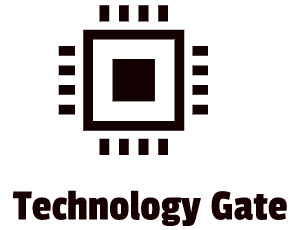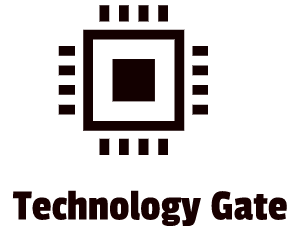It was one of those warm Dutch summer afternoons in July 2024 that stay with you not because anything big happened, but because everything felt right. No plans, no pressure — just a slow walk under soft light, the kind of moment that reminds you why you work so hard in the first place. I had flown back home from San Diego after months of being away, working long hours on the other side of the world to lay the financial foundation for our newly acquired company. That summer, for the first time in a while, I had the luxury of time with my family. Real time. Not scheduled video calls or squeezed-in updates — just quiet, shared presence.
Sometimes the Most Important Questions Come on the Quietest Days
And on one of those days, I found myself walking with my daughter. She was talking, as she does, about school and books and the little things that matter when you’re ten years old. I was listening — truly listening — when she suddenly stopped, looked up at me, and asked a question that has stayed with me ever since:
“Dad, what kind of job do you have exactly?”
At first, I smiled. It sounded like such a simple question. The kind you answer quickly before steering the conversation back to her world. But the more I thought about it, the more I realized it wasn’t simple at all. Not anymore, because in the world we now work in, I have a different role that I now carry.
Because fifteen years ago, the answer would have been easy. I would’ve said I worked in Finance. That I processed invoices, reconciled ledgers, prepared reports, and made sure the numbers lined up and the tax returns got filed. I would have told her that I kept things clean and compliant — and that my job was to make sure we followed the rules and avoided mistakes. That would have been true, and it would have made sense.
But it wouldn’t have told her the whole story. Not the one I live in today.
The Dragon Badge
Back then, Finance was about structure and safety. We were the ones who made sure the company stayed within the lines. We didn’t just track the treasure — we guarded it. So much so, in fact, that a colleague once engraved me a badge as a joke. It read: “Smaug” — the dragon from The Hobbit who sleeps atop a pile of gold, daring anyone to come close. It made us laugh, but we both knew the joke had a ring of truth. Finance was where dreams went to get cut down. We weren’t partners. We were gatekeepers.
That badge still sits in my office. Not as a joke anymore, but as a reminder. A symbol of how Finance used to work — and how much it has to change.
A Better Answer
So there I was, standing beside my daughter on a quiet path, thinking about how to explain what I do. And I gave her the simplest, most honest answer I could:
“I help the company make smart decisions. But first, I have to make sure everything in Finance works properly. Because if the basics aren’t right, we can’t build anything strong.”
She nodded, and that was enough. But it left me thinking. Because the truth is, that’s what the role of CFO — and really, the entire Finance function — has become. We’re no longer just there to count things after they happen. We’re here to help shape what happens next. We’ve shifted from being record-keepers to becoming architects of information, from passively tracking results to actively guiding the future. And that shift isn’t just about better tools or smarter software. It’s about mindset. About the purpose.
Building From the Ground Up
When I first arrived in San Diego, nothing was in place. No structured systems. No approval flows. Finance happened through email threads and late-night Excel fixes. Everything depended on a few good people doing their best. But even the best people can only do so much without a foundation.
My job isn’t just to clean up the numbers. It is to build the finance framework with the Finance team — the workflows, controls, tools, and trust — so that Finance could support the business in real-time, not play catch-up with the past.
It was hard work, involving late nights, early mornings, and full weekends of work. But every effort was worth it. Today, our company has a structure, rhythm, and visibility. Finance isn’t just an afterthought: we are part of the engine. We are not yet finished with the framework, but we have already made significant progress—something to be very proud of.
And more importantly, my family is here. We’re back together. And that walk with my daughter, under a different sky, helped me see that the work we do isn’t just about spreadsheets and approvals. It’s about building systems that give people — at work and at home — the clarity to grow.
The Modern CFO
There’s a quiet revolution happening in Finance. You won’t read about it in the headlines. You won’t see it celebrated with fanfare. But it’s changing everything.
The CFO used to be the one who guarded the money. Today, we’re asked to do something much more difficult: to make sense of it. To turn numbers into insight. To help others make smarter bets, even when certainty is nowhere in sight.
That means we have to get the basics right. Yes. But we also need to master technology, understand automation, build scalable processes, and — most of all — learn to communicate. We need to stop showing off how much we know and start helping others ask better questions.
That means we have to get the basics right. Yes. But we also need to master technology, understand automation, build scalable processes, and — most of all — learn to communicate. We need to stop showing off how much we know and start helping others ask better questions. Because ultimately, that’s what makes Finance truly valuable: helping the business move forward with clarity and confidence.
And judgment is only possible when people trust you. Not because you’re the smartest person in the room, but because you make the people around you feel more capable. Because you ask the right questions at the right time. And because you never let the show become more important than the substance.
Walk With Them
I’ve come to believe that Finance is not about distance. It’s about being close enough to the business to understand what really matters, and then helping others move forward with confidence.
That’s why I always keep that badge — the one that says “Smaug” — close by. Not to remind me of power, but to remind me of what happens when Finance stands apart instead of beside.
And that’s also why I’ll never forget that walk with my daughter. Because it helped me realize that the real legacy of a Finance leader isn’t in the reports we file or the budgets we balance. It’s in the clarity we bring. The decisions we support. And the people we walk with — every day, every step.
If you’re early in your career, wondering if Finance is where you belong, I hope you know this: it can be. But only if you’re willing to let go of the old story. The story that says Finance is about rules, about control, about being the one who always says no. We’re not dragons anymore. We’re builders. Partners. Guides. And every once in a while, if we’re lucky, we get to explain that — not in a boardroom, but on a quiet walk, with someone who reminds us why it all matters.
For more real stories and modern Finance insights, you can frequently visit my blog here at www.technology-gate.com because the world of Finance is changing fast. And whether you’re just starting your journey or deep in the middle of it, one thing is certain: it’s better when you don’t walk it alone.





